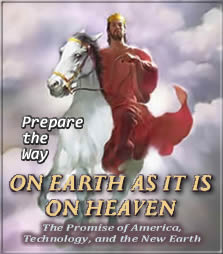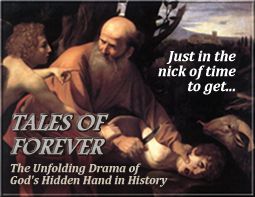Outsiders Looking In
Postcards From Heaven
Ever heard the saying: Some people are so heavenly minded, they’re no earthly good? Just ask that sort: “What’s the most important message in The Bible? I mean, sure, it’s a book about faith, hope, and love, about Christ dying for our sins, about receiving forgiveness for those sins and finding the road to eternal life. I get that. But apart from that: What is it about The Bible that lets us know it’s more than just a nice story with a happy ending? Isn’t The Bible supposed to contain a message of why all the things like faith, forgiveness, and eternal life are possible? Isn’t it supposed to demonstrate that God is in control, and that because He’s in control, He can be trusted to keep His promises to humanity?”
If God is like the Deists tell us, then sure, He made the Universe, wound it up like a clock, and set all the laws of the Universe into motion. But after that, if He checked out and left the Universe to mankind, then there’s no evidence that He’s in control of anything that’s important to us, as in, the destiny of the nations of the world or the people who make up those nations. If He isn’t in control of the nations or us, then all this talk of faith, hope, and love is out the window. It’s meaningless, because even if God built into the Universe the free will of every living entity, it doesn’t mean He’s a God Who can be trusted.
“But of course God can be trusted,” insist the sincere believers in Scripture. “Of course God is in control.”
At which point, one quite naturally asks for some tangible proof of God’s control over history, over the nations, over us.
Story Continues Below
Says Richard Price—the founder and CEO of Academia.edu—on his podcast In Depth With Academia:
On Earth as It is On Heaven: The Promise of America, Technology, and the New Earth is:
To hear Price’s book review of On Earth as It is On Heaven, CLICK HERE.
To hear Kent discuss the promises of God that pertain to God’s Kingdom on Earth, particularly as they pertain to the nations of the West, with Zen Garcia, the host of the Internet talk show Momentary Zen, CLICK BELOW.
Story Continues From Above
But instead of hearing about this proof from Scripture itself, we’re offered only platitudes, like: “Well, you just have to trust that He’s in control; that’s all there is to it. When you see nation rising up against nation, when you hear of wars and rumors of wars, when there are earthquakes, famines, and pestilences in many places, you’re not supposed to see confusion and disarray in all that; you’re supposed to see that, God is in control. Right?”
To which I’d reply, “Oh, really, that’s your proof? When we see disaster and chaos, we’re supposed to see God’s faithfulness to His word? Is that all there is to it, then?”
“Well, yes,” comes the befuddled response. “I’m sorry I don’t have a better answer for you, but that’s all I’ve got, friend. But fear not, the Lord will restore all things someday, when He splits the sky and returns in all His glory. Till then, we have the hope of being made worthy in God’s sight, the hope of eternal life, the hope of being received into Heaven after we die. Isn’t that enough?”
To which I’d reply, “I suppose so, sure. The only problem with your train of thought is: If The Bible doesn’t reveal the way in which God is in control, then what’s the point of looking to it? What good is it if the tales of Scripture are nothing more than cheery postcards from Heaven, telling us to keep a stiff upper lip until God makes it all better someday? If The Bible doesn’t provide us with evidence of God’s control over history, then how do we know He controls our lives as individuals? If God isn’t in control of our lives—in this mess of a world we call ‘life’—then how can we trust Him? And if we can’t trust Him, then how can we inherit this eternal life you speak of? Without trust, what are we to make of this thing you call hope?”







